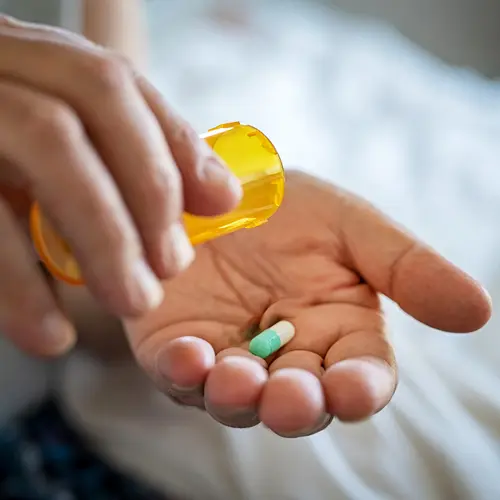If you have neck or back pain, or you’re dealing with some other condition that causes muscle spasms, your doctor might prescribe a muscle relaxer (or muscle relaxant) for you.
Having a muscle spasm means that one or more of your muscles is contracting and the twitching or cramping is out of your control. It can happen for a lot of different reasons, and can sometimes be very painful.
While there are many different treatments for pain, your doctor may decide that a muscle relaxer is the best solution for you.
When You Might Need a Muscle Relaxer
Your doctor might first suggest you try an over-the-counter medicine like acetaminophen (Tylenol) or ibuprofen (Advil) to treat your pain. But if those don’t work, or you can’t take them because you have another issue like liver problems or ulcers, you may need to try a muscle relaxant.
Muscle relaxants are ideally prescribed for acute rather than chronic pain. They may be an option if pain is preventing you from getting enough sleep. Because muscle relaxants cause drowsiness, they can help you get rest when you take them at night.
Side Effects
No matter what kind of muscle relaxer you take, it is common to have side effects. Some muscle relaxants, however, can have potentially serious side effects, like liver damage. Your doctor will work with you to find the medication that makes the most sense for your situation.
The most common side effects include:
- Tiredness, drowsiness, or sedation effect
- Fatigue or weakness
- Dizziness
- Dry mouth
- Depression
- Decreased blood pressure
You shouldn’t drink alcohol while taking muscle relaxants. These medications make it hard to think and function normally, even if you take a low dose, so combining them with alcohol can increase your risk of an accident.
You also shouldn’t drive or operate heavy machinery while taking muscle relaxants. Some muscle relaxers start working within 30 minutes of taking them, and the effects can last anywhere from 4 to 6 hours.
Addiction and Abuse
Muscle relaxants can be addictive for some people. Taking them without a prescription, or taking more than your doctor has recommended, can increase your chances of becoming addicted. So can using them over a long period of time.
Almost all cases of addiction and abuse are due to the drug carisoprodol (Soma), which is considered a schedule IV controlled substance. That’s because when the drug breaks down in your body, it produces a substance called meprobamate that acts like a tranquilizer. People who become addicted to carisoprodol sometimes abuse the drug because they are no longer using it for medical reasons, and they crave it.
Other kinds of muscle relaxants may be addictive too. Cyclobenzaprine (Flexeril) has also been linked to misuse and abuse.
With prolonged use you can become physically dependent on some muscle relaxants. This means that without the medication, you can have withdrawal symptoms. You may have insomnia, vomiting or anxiety when you stop taking it.

